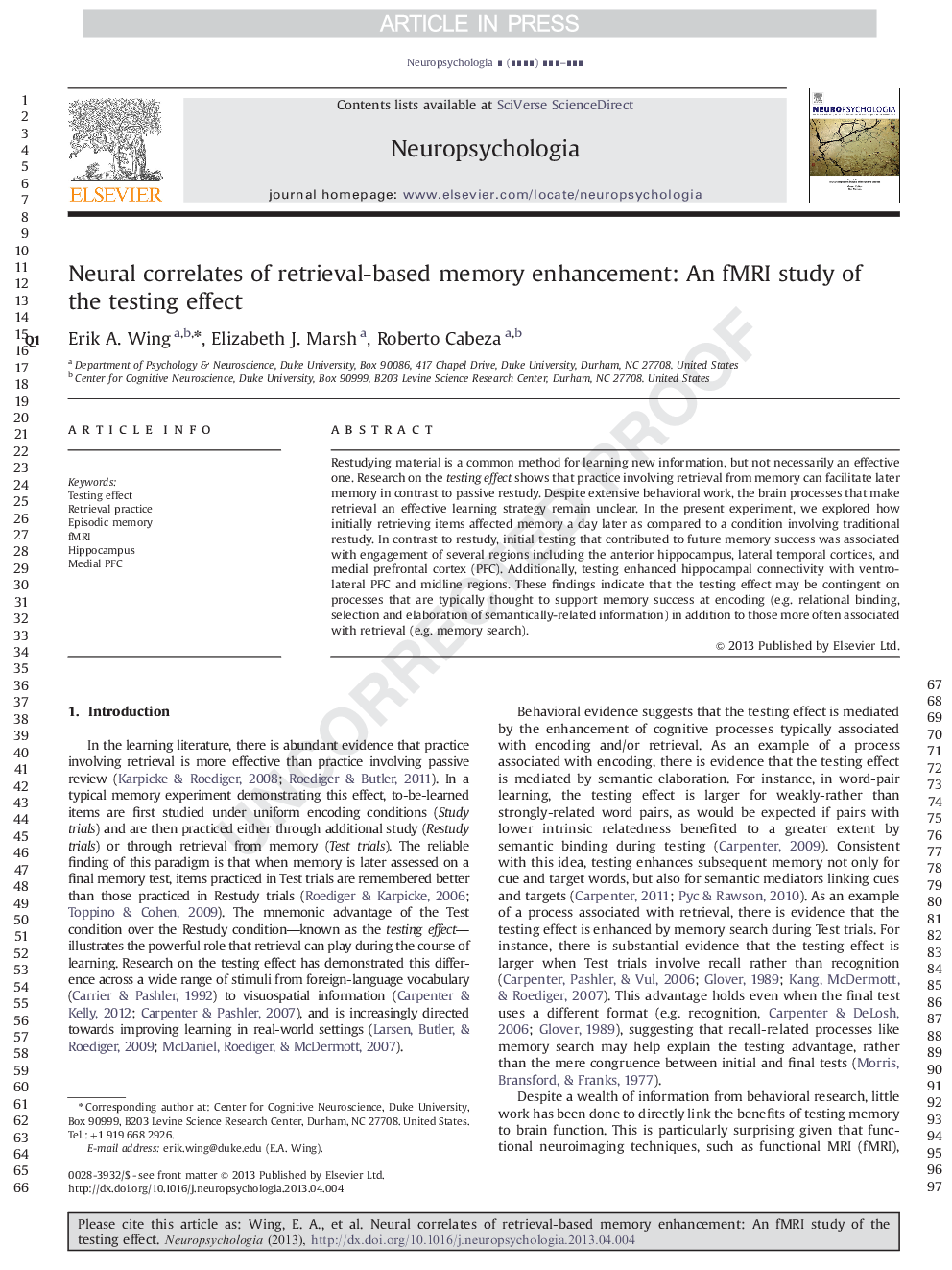| Article ID | Journal | Published Year | Pages | File Type |
|---|---|---|---|---|
| 10464954 | Neuropsychologia | 2013 | 11 Pages |
Abstract
Restudying material is a common method for learning new information, but not necessarily an effective one. Research on the testing effect shows that practice involving retrieval from memory can facilitate later memory in contrast to passive restudy. Despite extensive behavioral work, the brain processes that make retrieval an effective learning strategy remain unclear. In the present experiment, we explored how initially retrieving items affected memory a day later as compared to a condition involving traditional restudy. In contrast to restudy, initial testing that contributed to future memory success was associated with engagement of several regions including the anterior hippocampus, lateral temporal cortices, and medial prefrontal cortex (PFC). Additionally, testing enhanced hippocampal connectivity with ventrolateral PFC and midline regions. These findings indicate that the testing effect may be contingent on processes that are typically thought to support memory success at encoding (e.g. relational binding, selection and elaboration of semantically-related information) in addition to those more often associated with retrieval (e.g. memory search).
Related Topics
Life Sciences
Neuroscience
Behavioral Neuroscience
Authors
Erik A. Wing, Elizabeth J. Marsh, Roberto Cabeza,
